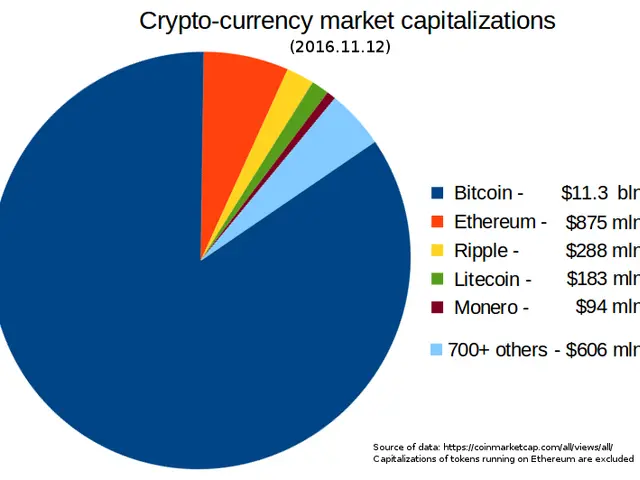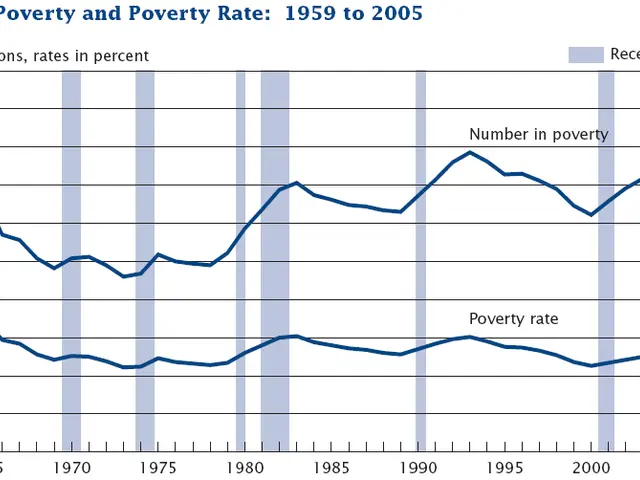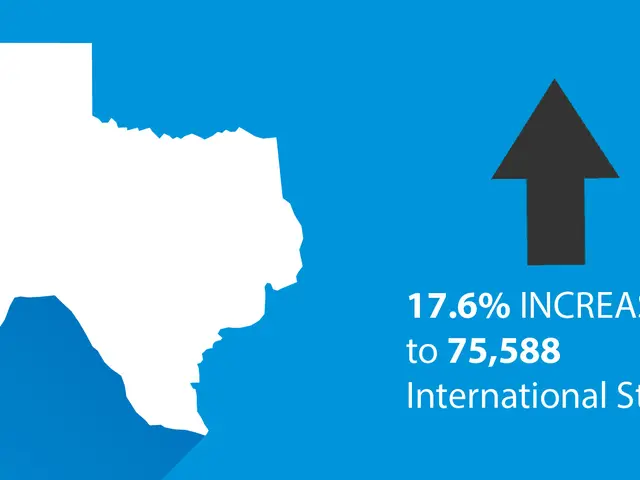Shifting Tides: The Influence of Pull-Ahead Effects on German Economy
Increase in exports and industrial production observed in March - Analysts attribute to pull-ahead phenomenon - Increase in Exports and Industrial Production Observed in March - Specialists Attest to Favorable Impact
Germany's exports and industrial production saw a jump in March, with the former reaching 133.2 billion euros and the latter increasing by 3%, largely thanks to the pull-ahead effects set off by anticipated tariffs and strategic stockpiling.
Leading the charge was a 2.4% increase in shipments to the US, totaling 14.6 billion euros. Additionally, goods worth 7.5 billion euros were exported to China, marking an uptick of 10.2%. These trends can be attributed to companies hastily importing goods to evade the impending tariffs that, though not all in effect during March, had already been announced.
The rise in industrial production was particularly prominent in the automotive and pharmaceutical sectors, with the manufacturing sector as a whole producing 3.0% more compared to February. Notably, the automotive industry, which is a significant contributor to Germany's economy, could face further impacts if these tariffs come into full effect.
Economists, however, are skeptical about the sustainability of this growth spurt. Volker Treier, chief economist for foreign trade at the DIHK, attributes this boost to pull-ahead effects rather than a long-term upward trend. As a result, both Germany and, especially, the US may face challenging times ahead as the tariff impasse persists.
Commenting on the situation, Nils Jannsen, head of the Conjuncture department at the Kiel Institute for the World Economy (IfW), suggests that the increased production could also be a result of stockpiling ahead of the announced tariffs. If indeed this is the case, the industry may face another downturn as these tariffs come into full effect.
In light of these developments, experts urge policymakers to focus on bolstering domestic demand to ensure a smoother ride through uncertain times. On the other hand, the US economy could slow down, potentially leading to more hardships for the German industry.
Further Reading:
- The Guardian: "German exports and industrial production rise despite trade tensions"
- International Monetary Fund: "China and Trade Deflection in the European Union: What is at Stake for Mitigating Impacts and Policy Responses"
- Peterson Institute for International Economics: "Germany, Industry and Trade Amid US Dispute with China"
- The community is urging policymakers to focus on vocational training programs to bolster domestic demand, a crucial strategy for navigating uncertain times.
- Economists assert that the rise in industrial production in Germany, especially in the automotive industry, might be temporary, preceded by companies stockpiling ahead of anticipated tariffs, thus qualifying as vocational training in this context.
- Nils Jannsen, head of the Conjuncture department at the Kiel Institute for the World Economy, opines that these vocational training practices could lead to an industry downturn once the tariffs come into full effect.
- As March exports to both the US and China saw substantial increases, there's a growing recognition within the business and finance sectors of the importance of staying informed about general-news and policy changes that may impact vocational training and exports.
- In the automotive industry, which plays a significant role in Germany's economy, policymakers are employing strategic vocational training initiatives to address the potential impacts of tariffs and ensure the industry's long-term growth and stability.








